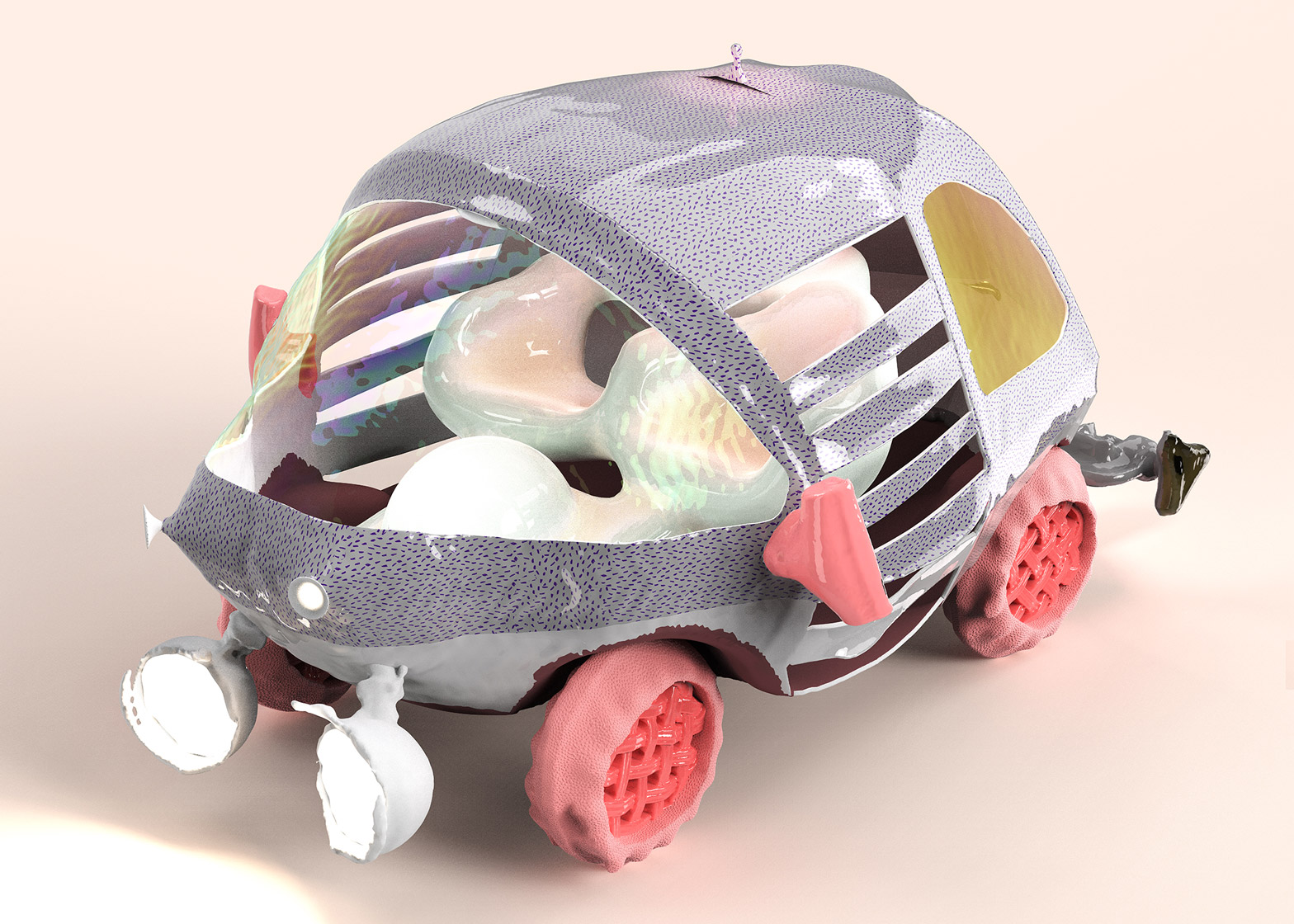Dutch Design Week 2015: Design Academy Eindhoven graduate Bastiaan de Nennie has 3D-scanned and re-assembled everyday objects as improbable digital creations.
The designer borrowed physical objects such as steering wheels, seat belts, buttons and umbrellas, using scanning technology to digitally deconstruct them in what he called a "reversed design process".
De Nennie then used their constituent parts to assemble purposefully fantastical new objects, which only exist digitally.
"While these objects/products become raw digital material, I see these digital shapes as a building block to sketch and assemble new ideas," he said.
"I work this way because I am fascinated by the amount of products we produce and the beautifully designed shapes from the pre-digital era which almost no one uses anymore," the designer added. "By doing this I try to give these shapes a new life and value in the digital design process."
The rippled pink bowl of a scale appears to rest on the tip of an iron, while an unsteady-looking bright yellow table features gherkin-shaped legs.
Also included in the collection is a pink and yellow bike, a telephone that lacks a receiver, a stool with a distorted steering wheel for a seat, and a car constructed from an umbrella with carpet-beater wheels.
De Nennie – who was recently commissioned to design a cover for Frame Magazine – told Dezeen that the project was a response to the perception and use of 3D scanning as "mainly a joke", with people often employing it to create low-resolution reproductions.
"In the computer I can assemble shapes of objects and have endless options, I never draw anything in the computer with this methodology, only deconstructing, scaling, transforming duplicating, etc," he said.
"The outcome of my process is new ideas or starting points for a possible new design, with open possibilities it could be for the virtual world, or come out of the screen back to the physical."
Nine of the pieces are being shown as wall-hung prints arranged around a selection of Naoto Fukasawa's minimal Muji kitchen appliances, at the Thing Nothing exhibition at Eindhoven's Van Abbemuseum.
The exhibition opened on 17 October 2015 and continues until 15 November 2015. Digital Virtuosity is also on display at the Design Academy Eindhoven graduate show, which is open for the duration of Dutch Design Week, which runs from 17 to 25 October 2015.
Also on show for Dutch Design Week is van Eijk and van der Lubbe's mirrored concept car for Volvo, Troy Nachtigall's 3D-printed high heels, and Martin van Strien's collection of downloadable fashion design.

